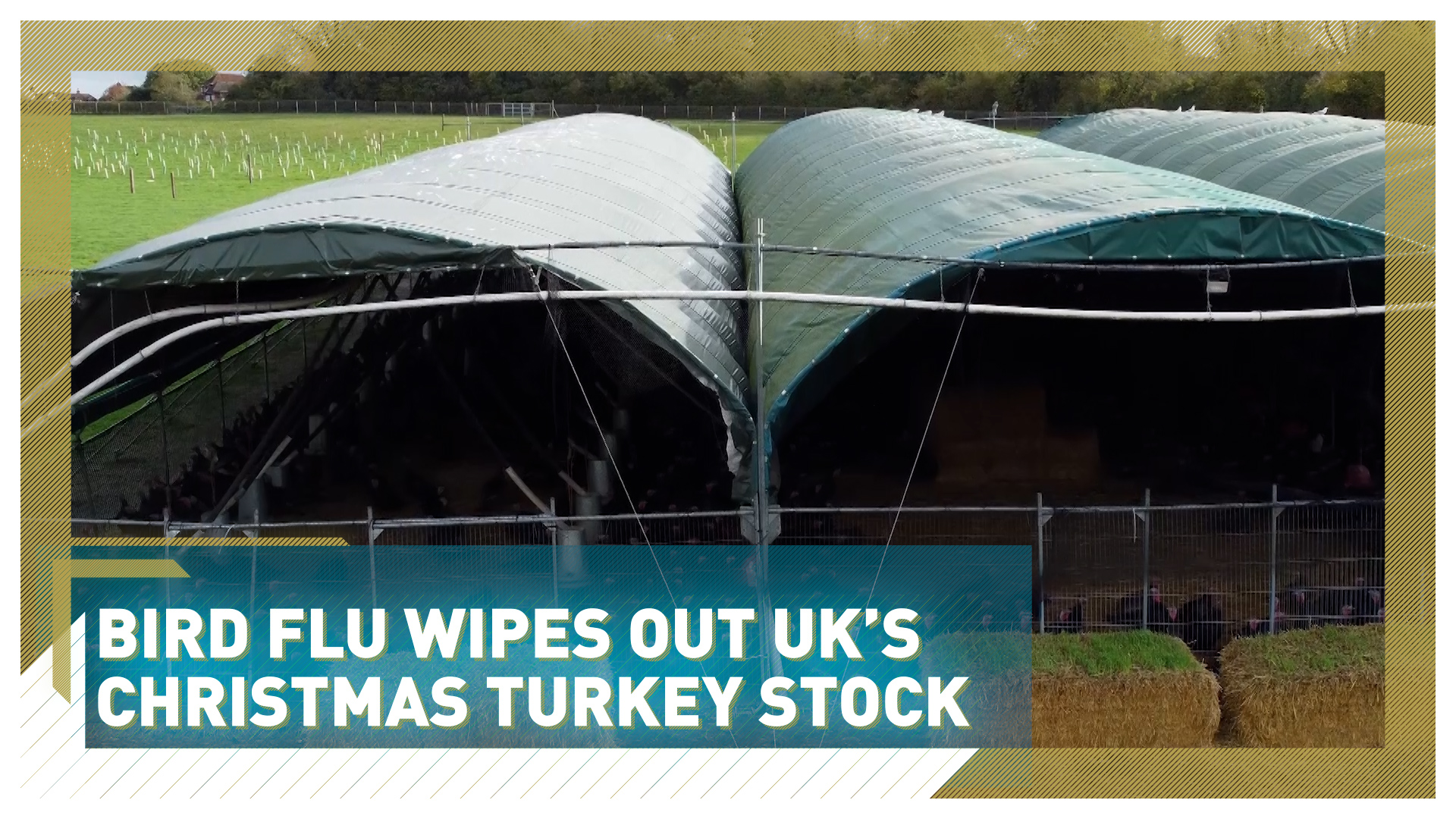02:39

Half of all free-range turkeys produced for Christmas in the UK have either died or been culled as a result of bird flu.
This year's H5N1 strain of the virus has led to millions of bird deaths, including around 600,000 free-range turkeys. Poultry experts say the losses could lead to a shortage in the number of birds available for festive meals.
At Copas Traditional Turkey farm in Southern England, the stakes have been high as 98 percent of turnover is via Christmas sales. If a single bird tested positive for the virus, the entire flock would have needed to be culled.
READ MORE
Spanish police raid Europe's drug 'super cartel'
The family with six generations of UK-China trading
China's forgotten heroes
"It's probably the COVID-19 of the poultry world," the farm's sales manager, Verity Copas, says. "It could be anywhere, and if you get it on a farm it decimates your flock. We would literally have nothing for Christmas and probably it would mean that in future years we wouldn't be able to produce."
Farmers and business owners have been spending hundreds of thousands of dollars on extra staff, equipment and housing materials in a bid to keep their animals healthy. Guidance on biosecurity measures has also been set out by the UK government, as well as an order to house all farmed and domestic birds indoors.

Around 50 percent of the UK's free-range Christmas turkeys have been lost to bird flu this year. That's around 600,000 birds. /CFP
Around 50 percent of the UK's free-range Christmas turkeys have been lost to bird flu this year. That's around 600,000 birds. /CFP
Despite best efforts, the risk of infection from wild animals carrying the virus persists and industry leaders say that without a vaccine, immunity is impossible. The British Poultry Council estimates around 50 percent of the free-range turkeys produced for Christmas 2022 have been lost so far, a total of around 600,000 birds.
Farmers warn the costs could be disastrous for some, with many already considering their future options.
"We're a small business and we've lost £1.2 million ($1.46 million) this year," poultry farmer Paul Kelly told lawmakers on the UK's Environment, Food and Rural Affairs Select Committee. "Luckily we're going to get through to next year…but can we take the risk to grow Christmas poultry based on what we've seen this year? We couldn't."
For consumers, there are warnings of possible stock shortages and price rises. But with so many poultry farmers reliant on festive sales to stay in business, Verity Copas says she hopes consumers aren't put off by extra costs.
"For the last few years it has been very tough for many families, but I think that celebration and one time to come together [means] hopefully people will want to spend that extra little bit on their family."